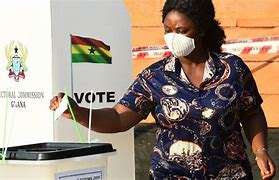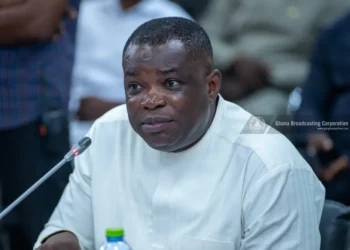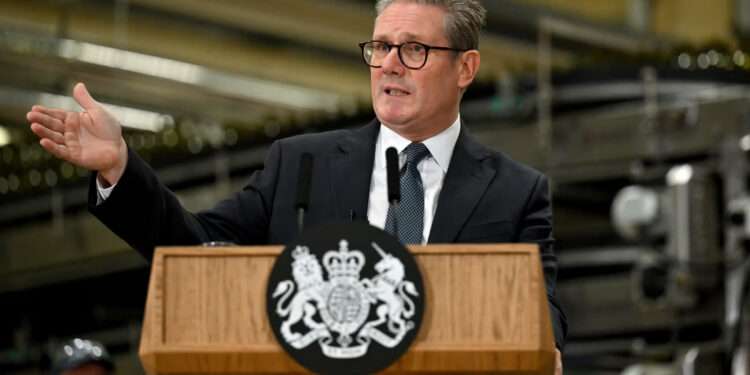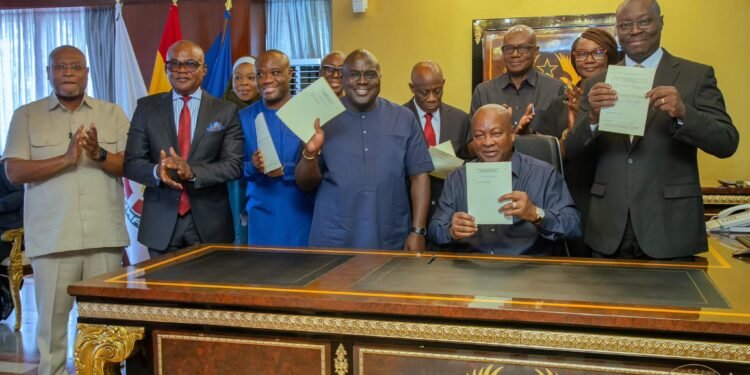In response to the recent proposal by the Electoral Commission (EC) to close polls at 3 PM, Professor Kwaku Asare, a Fellow at the Ghana Center for Democratic Development (CDD Ghana), has offered insights into the necessary procedural steps the EC should take.
Prof. Asare emphasized that the EC cannot simply announce the proposal but must formalize it in writing or as an exposure draft. He suggested circulating the draft among all stakeholders, providing a three-month window for comments, holding hearings, and then conducting a vote with justifications from commission members.
Prof. Asare raised critical questions about the proposed poll closure, including the need to balance transparency with the potential disenfranchisement of voters. He pointed out the lack of concrete data supporting the EC’s stance, cautioning against hasty decisions based on casual observations.

The proposal to close polls at 3 PM, as announced by EC Chair Jean Adukwei Mensa, aims to allow electoral officers to collate votes in broad daylight for transparency and orderliness. The rationale stems from the 2020 elections, where approximately 70 percent of voting centers were reportedly empty by 1 PM.
However, Prof. Asare highlighted the importance of a meticulous legislative process, emphasizing the need for transparency and adherence to constitutional requirements in the formulation of subsidiary legislation.
“Article 23 and Article 296 require that those laws, before they are made, follow some process. The EC cannot just announce a proposal; the EC has to actually put something in writing, an exposure draft, circulate that exposure draft to all stakeholders, set a common window, give people about three months to bring comments, and then distill those comments and hold hearings.”
Professor Kwaku Asare
While acknowledging the EC’s goal of reducing queues and ensuring a smooth voting process, Prof. Asare urged a comprehensive evaluation of potential consequences before implementing such changes. He called for a balanced approach that considers both transparency and inclusivity in the electoral process.
Prof. Asare’s insights underscore the importance of a deliberate and consultative approach to ensure the integrity of the electoral system. The recommendations provide a roadmap for the EC to navigate the intricacies of proposing and implementing changes while upholding democratic principles.
The Imperative Of Broader Consultation By The EC Ahead Of The 2024 Elections
As Ghana looks forward to the pivotal 2024 elections, recent concerns stemming from the perceived shortcomings in the local elections underscore the pressing need for the Electoral Commission (EC) to prioritize broader consultation. The democratic process, a cornerstone of Ghana’s governance, demands transparency, inclusivity, and the active involvement of stakeholders to uphold its integrity.

The local elections, marred by controversies and criticisms, have prompted a collective call for the EC to reevaluate its approach. A crucial aspect of this reevaluation lies in ensuring that decisions regarding election procedures are not made in isolation but through extensive consultation with various stakeholders, including political parties, civil society organizations, and legal experts.
The local elections revealed gaps in communication, decision-making, and transparency, leading to uncertainties and discontent among the electorate. To address these challenges and fortify public confidence, the EC must adopt a more collaborative and consultative approach leading up to the 2024 elections.
Broader consultation serves multiple purposes. It enhances the legitimacy of electoral processes. When diverse perspectives are considered, and input is solicited from various quarters, decisions are more likely to align with the collective interests of the nation. This, in turn, fosters a sense of trust in the electoral system.
Secondly, involving stakeholders in the decision-making process helps identify potential pitfalls and unintended consequences. The complexities of election logistics, voter accessibility, and the impact of proposed changes on disenfranchisement can be better navigated through the insights of those actively engaged in the electoral landscape.
The aftermath of the local elections revealed that swift decisions without adequate consultation can result in controversy and erode public trust. The proposal to close polls at 3 PM, for instance, has generated discussions on balancing transparency with the risk of disenfranchising voters. Broader consultation would allow the EC to weigh these considerations more comprehensively.
Additionally, engaging stakeholders in the decision-making process can lead to more informed and nuanced electoral reforms. Lessons learned from the local elections provide an opportunity for the EC to embrace feedback, rectify shortcomings, and collaboratively design improvements that enhance the overall electoral experience.
The road to 2024 demands a collective commitment to fortify the democratic pillars of Ghana. Broader consultation by the EC is not a sign of weakness but a demonstration of the commission’s dedication to inclusivity, transparency, and the highest standards of electoral governance.
READ ALSO: Ghana’s Bittersweet Cocoa Industry Struggles Amidst Economic Challenges





















